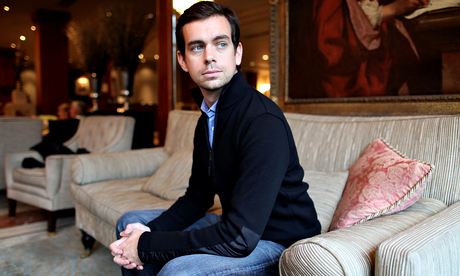
Life is so unfair. Consider the humble newt – which, in case you're wondering is an aquatic amphibian of the family Salamandridae. He has had such a bad press over the years. When PG Wodehouse, for example, was looking for a way of signalling that Bertie Wooster's chum Gussie Fink-Nottle was a feeble halfwit, he made him… a newt fancier.
Worst of all, though, is the slur that newts supposedly have short attention spans. The truth is that, compared to technology stock "analysts", Salamandridae have the intellectual stamina of Einstein. Witness, for example, the current stock market fluttering about Twitter's financial results. Readers with long memories will recall the frenzy about Twitter when it launched itself on the stock markets last November. The shares opened at $26 and closed at $44.90, giving the company a valuation of around $31bn on the day. Egged on by those analysts, everyone wanted a slice of the Twitter action – despite the fact that no one had any real idea how the company might eventually make money.
Since then the shares have steadily declined in value, but last Wednesday saw an acceleration in the downward slide: the shares dropped 12.6% after Twitter announced that it had had another loss-making quarter, even though the reported losses were less than some analysts had predicted. The thing that spooked the market seemed to be that the growth in Twitter users – and their use of the service – seemed to be slowing down. "We believe," said one investment analyst, "[that] millions of consumers have sampled Twitter only to find a complex product with marginal relevance and value – a view we realise stands in sharp contrast to the fanatical loyalty the company enjoys among its core users."
There are two paradoxical things about Twitter. The first is how so many people apparently can't get their heads around what seems like a blindingly simple idea – free expression, 140 characters at a time. I long ago lost count of the number of people who would come up to me on social occasions saying that they just couldn't see the point of Twitter. Why would anyone be interested in knowing what they had for breakfast? I would patiently explain that while some twitterers might indeed be broadcasting details of their eating habits, the significance of the medium was that it enabled one to tap into the "thought-stream" of interesting individuals. The key to it, in other words, lay in choosing whom to "follow". In that way, Twitter functions as a human-mediated RSS feed which is why, IMHO, it continues to be one of the most useful services available on the internet.
The second paradox about Twitter is how a service that has become ubiquitous – and enjoys nearly 100% name recognition, at least in industrialised countries – could become the stuff of analysts' nightmares because they fear it lacks a business model that will one day produce the revenues to justify investors' hopes for it.
They may be right about the business model – in which case Twitter becomes a perfect case study in the economics of information goods. The key to success in cyberspace is to harness the power of Metcalfe's Law, which says that the value of a network is proportional to the square of the number of its users. In layman's terms this means that the faster you can acquire users the quicker you reach the point of becoming the winner who takes all. And the quickest way to do that is to offer your services for free rather than charging people for them. But since it costs quite a lot to provide online services at massive scale, the free strategy can only be realised by raising venture capital and burning through it at a phenomenal rate.
Which is exactly what Twitter has been doing. Last quarter, for example, it burned its way through $132.4m of investors' money, which is the difference between its operating costs and the $250.5m it got in sales. The existential questions for the company, therefore, are: whether it can get to the point where it is at least breaking even; and whether it can get there before it runs out of investors' cash.
The thing that impales companies like Twitter on the horns of this dilemma is, ultimately, our reluctance to pay for online services. But therein lies another cruel paradox: if Twitter had charged users from the outset, then it would have grown in a sustainable way, covering its costs as it developed, and no one would be worried about its future. But by now it would have been eclipsed by a rival that expanded faster by offering comparable services for nothing. The first rule of cyberspace is: Metcalfe's Law rules OK.

